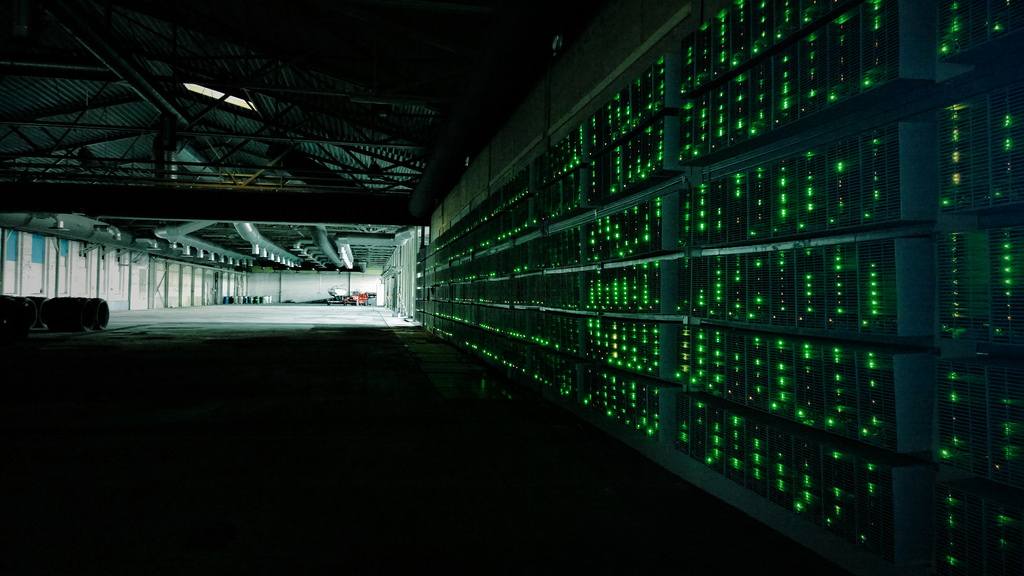Roboadvisors are automating all types of investments
12 most mindblowing acquisitions in recent history
Interesting discussion going on at 12Most regarding the most mindblowing acquisitions in history.
Obviously, the fervor around Facebook’s intention to buy photo app, Instagram for $1B prompted this list but I thought it would be a good time to get your feedback into what you think were the most influential mergers in the financial space.
To get things started, I added the $15 billion BlackRock-Barclays Global (BGI) merger which essentially made BlackRock the largest asset manager on the planet but also gave them the crown jewel in the ETF space, which just keeps growing like a weed.
What do you think are notable mergers in our space?
Vote or add your picks below:
Stock markets continue to lose share to private exchanges
Institutional investors with large blocks of shares to sell don’t just open up an account at E*Trade and dump them into the market. Doing so tips their hands and astute short sellers can hop a ride on stocks being disposed, making money along the way and reducing profits for the institutional seller.
Conversely, if an institution wants to accumulate shares in a relatively thinly traded stock, they can’t go out to a retail stock broker and say, “Hey buddy, get me 10 million shares of that hot new small cap tech stock.” Doing so would cause the price to rise just by announcing such intentions.
How Institutional Investors Trade
To handle insitutional volumes of stock trading, traders do the following
- VWAP: Some traders will program trading software to purchase a maximum % of volume on given days (called VWAP or Volume Weighted Average Price).
- Smaller trades at various brokers: Sometimes traders will parcel out trades to multiple brokers to mask the fact that a large number of shares are being traded by one institution.
- Dark pools: And sometimes, when there is really an impetus to sell/buy a large chunk of stock, traders will go to their brokers and ask them to cross a block of shares on the low — by not going too public with the info. Execution speed is paramount here and the action is as much in the data centers in New Jersey as it is on Wall Street. These dark pools now account for 1 in 3 shares of stocks traded according to the Wall Street Journal.
In ‘Dark Pools’ Pick up Stock Trading Share, the WSJ takes aim at the rise in these dark pools.
The rise of so-called dark pools and other off-exchange strategies aimed at large banks and institutional traders comes as regulators on both sides of the Atlantic grapple with balancing the market efficiencies the alternative venues say they generate with the impact on individual investors.
Private venues are seen as a more efficient way for transacting large chunks of shares, but critics worry that if so much trading is done privately, publicly available prices set by exchanges will become less accurate. Dark pools are electronic platforms designed for institutions to carry out major stock trades anonymously.
Varying forces
Having 30% of trading beyond the veil of regulators and common investors creates a tiered trading system, something inherently seen as unfair and anti-competitive. The emergence of internal stock trading platforms like powerhouse BlackRock recently announced are not new, they’re just taking on more volume and therefore, importance. In general, we’re witnessing the rise of the machines and algorithmic trading which is the purest combination of technology and investing. The stock exchanges like NASDAQ OMX ($NDAQ) and NYSE Euronext ($NYX) are pleading and crying to regulators to help right this wrong.
Beyond the histrionics, the stock exchanges are also developing technology to help lure institutions back to their platforms. The NASDAQ OMX CEO was on Forbes recently touting the work they’ve done on PSX, an exchange that doesn’t give preference only to speed but also to size of trades. This platform has already demonstrated its ability to bring many of the institutional trades happening offline, back online.
As Felix Salmon said in Wired, “In the wake of the flash crash, Mary Schapiro, chair of the Securities and Exchange Commission, publicly mused that humans may need to wrest some control back from the machines.”
‘Automated trading systems will follow their coded logic regardless of outcome while human involvement likely would have prevented these orders from executing at absurd prices.’
Giving up control to the computers is not really what’s at stake here. Computer trading just reflects the rules-based logic entered by the humans who program the algos. Rather, it’s the essential bifurcation of the markets: one for pros and one for the rest of us. It’s the unleveling of the playing field at stake here that should have everyone concerned.
Source:
Dark Pools Pick up Stock Trading Share (WSJ)
Algorithms take control of Wall Street (Wired)
BlackRock to launch trading platform (FT.com)
photo courtesy of tenaciousme









